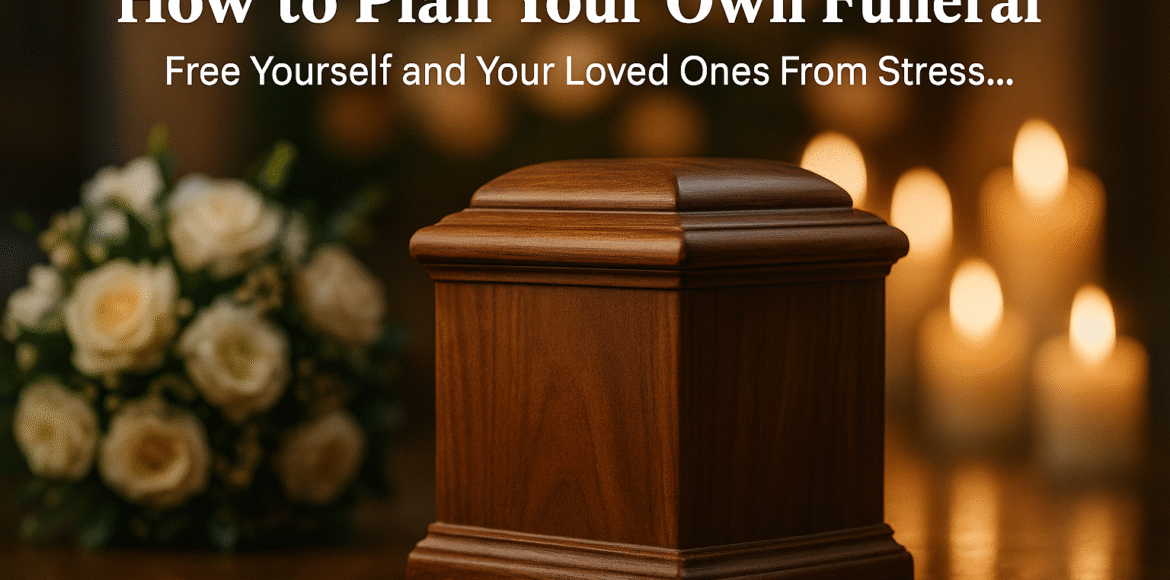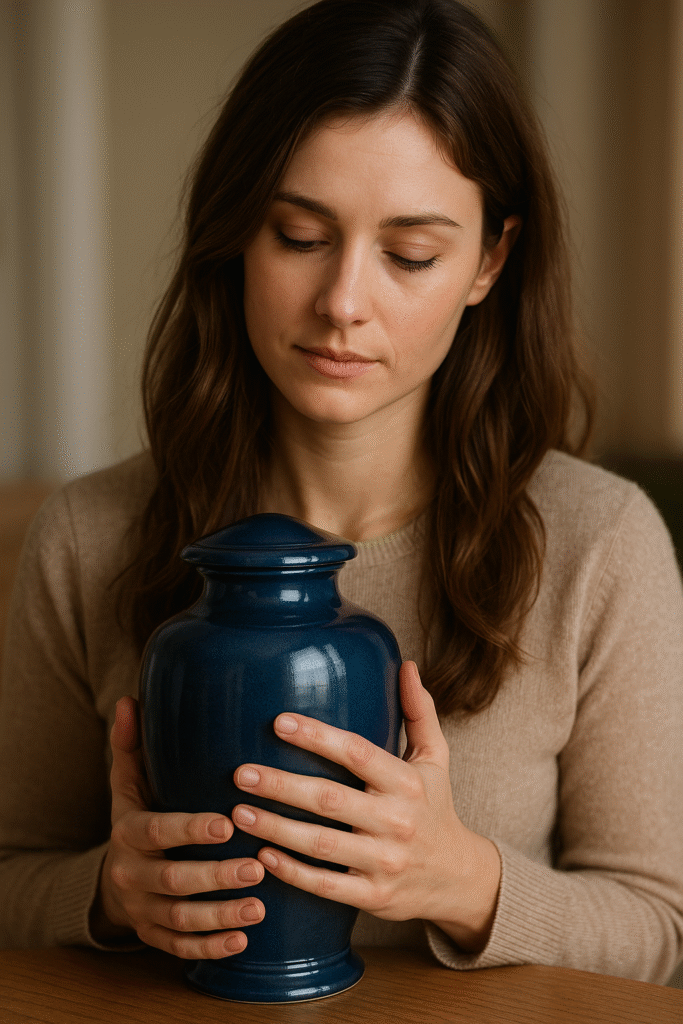“I Wanted a Say in My Goodbye…” Why More Americans Are Now Planning Their Own Funerals Before It’s Too Late

“I Wanted a Say in My Goodbye…” Why More Americans Are Now Planning Their Own Funerals Before It’s Too Late
Let’s face it—talking about death feels like stepping on emotional landmines. But ignoring it? That leaves your loved ones to guess what you would’ve wanted… while grieving. That’s why more and more Americans are choosing to plan their own funerals—not because they expect to die soon, but because they want to live well knowing everything is taken care of.
Funeral preplanning isn’t about dwelling on the end. It’s about telling your story, easing the emotional burden for those left behind, and ensuring that when the time comes, your goodbye reflects your life.
Here’s how you can take charge of your legacy—with clarity, compassion, and even a touch of creativity.

Why Preplanning Your Funeral Actually Matters
It might feel strange to plan your own farewell, but it’s one of the most selfless decisions you can make.
When you preplan, you gift your family peace of mind. Instead of being forced to make stressful decisions in a time of shock, they simply follow the path you’ve already laid out. That includes choosing between a burial or cremation, selecting a service style, and managing expenses.
And then there’s the money. Funerals in the U.S. can cost anywhere from $7,000 to $12,000, according to the National Funeral Directors Association. By planning in advance, you can lock in today’s prices, sparing your family from inflation or last-minute upcharges.
Finally, preplanning gives you control over the narrative of your life. From the playlist at your memorial to the design of your cremation urn, you can ensure every detail reflects your personality, beliefs, and journey.

Step-by-Step: How to Start Planning Your Funeral
1. Choose Between Burial, Cremation, or Green Burial
This is the cornerstone of your plan. If you prefer traditional burial, you’ll need to decide on a casket, cemetery plot, and grave marker. Many find comfort in having a physical place where loved ones can visit.
If you’re leaning toward cremation, you’ll need to think about your final resting place. Will your ashes be kept in a funeral urn at home? Scattered in a favorite spot? Or perhaps preserved in cremation jewelry?
At Dei Gratia Urns, we offer handcrafted urns made from aluminum, ceramic, and biodegradable materials that resonate with spiritual and personal significance.
For the eco-conscious, a green burial eliminates embalming and uses biodegradable containers, offering a return to nature that’s both gentle and symbolic.
2. Personalize the Service
No two lives are the same—your funeral shouldn’t be either.
Would you prefer a religious ceremony with prayers and hymns? Or a celebration of life, complete with your favorite songs, videos, or even a barbecue?
Think about:
- Who should speak?
- What location suits your spirit—church, beach, or backyard?
- Should your cremation urn be displayed? Should there be a memory table with photos, medals, or letters?
These are all expressions of who you were—and how you want to be remembered.
3. Selecting the Right Funeral Home
Not all funeral providers are the same. Ask:
- Do they offer transparent pricing?
- Can they accommodate cultural or religious preferences?
- What are their prepayment plan options?
Also check online reviews, Better Business Bureau ratings, and community referrals. Choosing the right provider ensures your wishes aren’t just written down—they’re respected.
4. Document Your Wishes Clearly
A plan in your head helps no one. Write it down and store it in a secure but accessible location.
We recommend:
- A written funeral directive
- A digital document stored with a secure service
- Copies shared with a trusted family member or executor
Your loved ones need to know where this plan lives—especially during an emotional moment when clarity is scarce.
5. Should You Prepay?
Prepayment can protect your family from future financial stress, but it comes with fine print. If you choose this route, ask:
- What happens if I move?
- Can I cancel or adjust the plan?
- Are funds placed in a trust or insurance policy?
If you’re unsure, you can also set up a payable-on-death (POD) bank account to cover funeral costs without locking into a contract.
6. Talking to Your Family
Perhaps the hardest—but most important—step. Gather your loved ones for a calm, honest conversation. Share your plan, explain your choices, and let them know where documents are kept.
This talk might feel heavy, but it prevents confusion, guilt, and disagreements later on.
What If You Choose Cremation?
Choosing cremation offers more flexibility and personalization. With cremation urns, you can:
- Keep ashes at home in a decorative keepsake urn
- Share remains among family in miniature urns
- Incorporate ashes into memorial art or cremation jewelry
Dei Gratia Urns provides families with symbolic urns—ranging from angel urns, heart-shaped child urns, to eco-friendly scattering urns—each crafted to tell a story.
The Takeaway: This Is Your Legacy
Planning your own funeral isn’t grim. It’s empowering. It says, “I care enough about the people I love to make things easier for them.”
It ensures that your memory lives on the way you want. It allows you to rest knowing that your farewell will be as meaningful as the life you lived.
Whether you’re choosing a premium cremation urn, outlining your memorial songs, or just writing down a few wishes—start now. The best time to plan was yesterday. The next best time is today.
